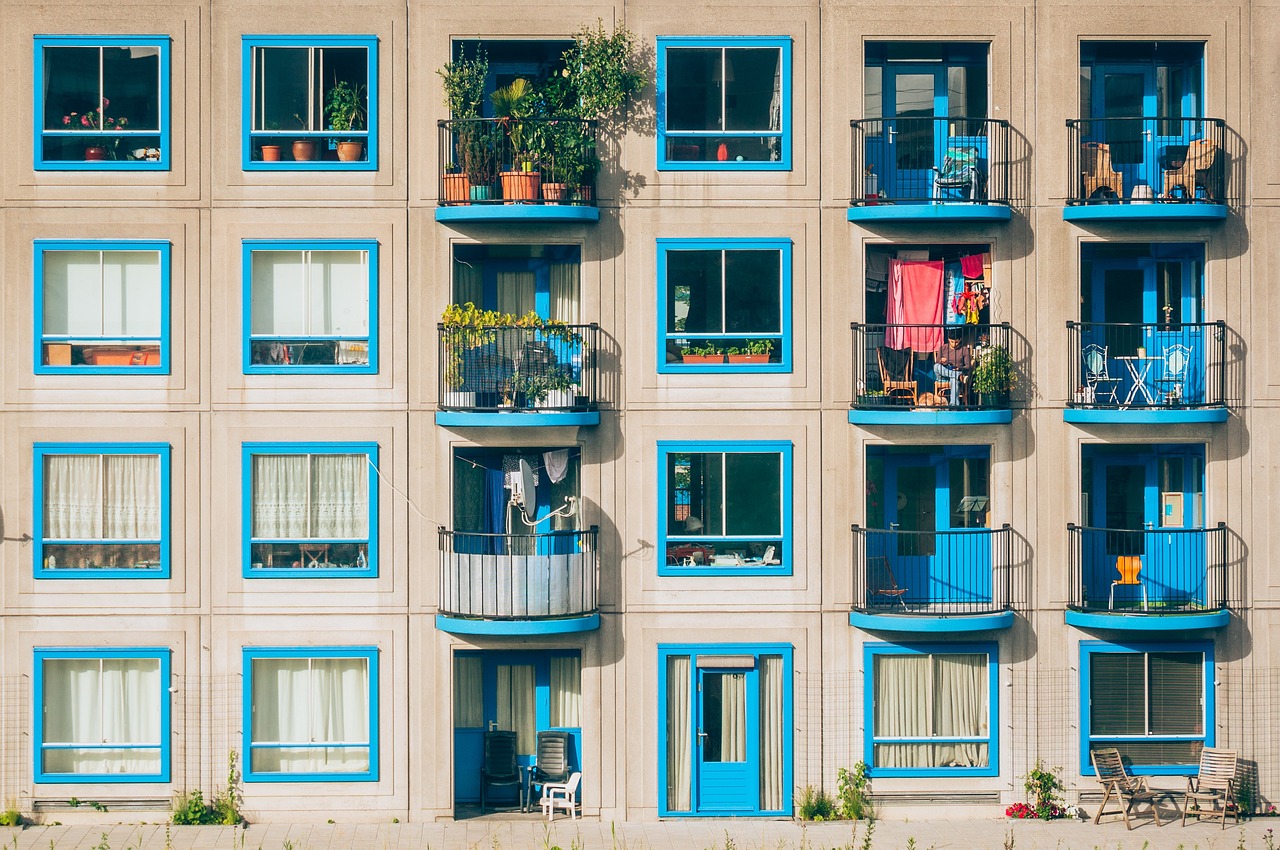
The act of living in an apartment presents unique challenges when it comes to ensuring one’s survival. The constraints of space, resources, and the absence of personal land ownership appear to make it exceedingly difficult to make any preparations for survival. Despite these obstacles, apartment dwellers face a greater urgency to prepare, as they lack the resource advantages enjoyed by those residing in suburban areas.
Apartment dwellers have an advantage in that their apartment buildings are more likely to withstand severe weather conditions compared to typical suburban homes. The regulations for constructing apartment buildings, particularly newer ones, differ from those applied to single-family houses.
A Word About Money
A significant number of individuals choose to reside in apartments due to the belief that it is within their financial means. However, it is worth noting that the current financial landscape offers fascinating opportunities. At present, purchasing a house is more economical compared to renting a house or even renting an apartment.
Whether you choose to rent or purchase, the crucial thing is to avoid having a home that is so costly it pushes your finances to the limit. This can be particularly difficult for preppers, who typically require more room to store their supplies. Prior to making any housing decisions, it is important to explore all available options in order to ensure you are receiving the most advantageous deal for your money. While space is necessary, it is equally essential to have additional funds in your budget.
Lack of Storage
The primary issue faced by apartment dwellers is storage. This challenge isn’t exclusive to preppers, as most apartments have limited space for storage. And if you have a large family, the problem becomes even more serious.
The initial step is to optimize the space you currently have. Despite the limited amount available, there are likely numerous ways to enhance its utilization. Within an average household, several overlooked areas can serve as useful space. Additionally, various online resources and do-it-yourself projects can guide you in effectively utilizing that space.
Below, I have listed a few locations for you to consider:
- Underneath beds – This includes the space inside the “box,” which has replaced box springs with modern mattresses.
- Behind furniture – A thin shelf stocked with food will fit behind most pieces of furniture without visibly shrinking the room.
- Behind books on shelves – If you have bookshelves in your apartment, they are probably 12 inches deep. But the majority of the books we put on those shelves are only 5 ½” to 6″ deep. So, pull the books forward and put other things behind them.
- Under kitchen cabinets – Pulling off the kickboard on the base of your kitchen cabinets reveals a space that can be used for storage, with the kickboard being placed back on.
- Build the kids’ bunk beds, with built-in storage for their things. That is especially important for larger families.
- Inside furniture – There is usually wasted space under the cushions of seats and in the backs of sofas and other upholstered furniture.
The extent to which you can effectively utilize concealed space in your apartment is contingent upon your willingness to forfeit your damage deposit. An excellent hiding spot within any residence involves creating an opening within the wall partitioning a closet from a room, specifically from the interior of said closet. Despite a thorough search, individuals commonly overlook inspecting the area above the door and its surroundings. However, committing to opening up this space or engaging in other built-in storage endeavors may result in your landlord withholding the return of your deposit.
MANAGE INFORMATION
Have extensive knowledge about others, while allowing others to only know what you choose to disclose about yourself.
Living in an apartment building generally entails the inevitability of interacting with neighbors, making it important to maintain a sense of curiosity about those around you. Understanding the types of individuals who reside nearby, their occupations, perspectives, interests, and concerns can greatly benefit your social connections.
Of course, this does not imply that you should transform into a spy or stalker within your community. Simply utilize your time to gather information by engaging in conversations or observing their activities.
When it comes to security, it is essential to remain silent, particularly regarding your preparations.
However, this does not imply that you must embody the unpleasant individual in your community who despises others.
It is beneficial to be an ordinary person as it simplifies the process of gathering information. Moreover, being ordinary helps in avoiding the unnecessary attention that comes with being different, which is typically viewed in a negative light.
As a prepper, there is no need to appear drastically different; simply keep your unique traits to yourself.
RESOURCES
Regardless of whether you plan to evacuate immediately upon the initial signs of collapse or not, it is essential to store food and water in your apartment.
There are numerous suggestions available on how to store goods in small spaces, such as placing them inside beds or doors, using tubs to hold containers for water, and more.
It is essential to keep it confidential because it would be inconsequential if some of the neighbors approach your door to inquire about something and observe that your apartment resembles a storage facility for a catastrophic event.
When considering energy, there are many recommendations regarding solar panels for apartment prepping and such. However, it should be noted that having 4-5 solar panels at both your BOL and apartment is not equivalent, not merely in terms of convenience in setting them up.
If you are considering installing solar panels, it is advisable to opt for compact and easily transportable ones. These panels should be primarily designed for charging batteries, and it is important to explore ways to utilize them while minimizing their visibility from all angles.
HEATING
Depending on the climate in which you reside, it is crucial to have an alternative heating source. When a catastrophic event occurs, the situation becomes considerably more challenging when you are compelled to endure freezing conditions.
If your apartment building does not have a chimney system, consider thinking creatively and using metal pieces to direct smoke from your fireplace through your balcony, window, or a hole in the wall that you have created.
It may sound dirty and unintelligent, but people frequently utilized it in apartments during the war. Additionally, it’s important to remember that having a longer metal exhaust to eliminate smoke allows for keeping the stove closer and staying warm.
There are two issues present in this situation: the risk of poisoning, which can be prevented by constructing a suitable system, and the necessity of investing funds in a CO detector.
Another issue is the frequent mention by people of smoke emanating from your apartment, which may potentially attract trouble.
In reality, during a serious SHTF scenario, there will likely be significant smoke and odors in urban areas. However, if you anticipate that this could be an issue, consider using fire during the night or partially obscuring the exhaust to prevent the smoke source from being too obvious. Also, try dispersing the smoke slightly to create a more natural appearance, resembling a typical burning apartment rather than a controlled fire.
Bugging Out
The most favorable option for numerous individuals residing in apartments is to evacuate. Apartment residents will likely need to evacuate earlier than those in suburban areas due to the scarcity of resources. As a result of people’s desperation, increasing crime rates will be evident in cities prior to suburbs.
If you have relatives or friends living in the suburbs or rural areas, consider joining forces as a survival team. In the event of an emergency, you would evacuate to their location, bringing along your equipment, knowledge, and supplies.




